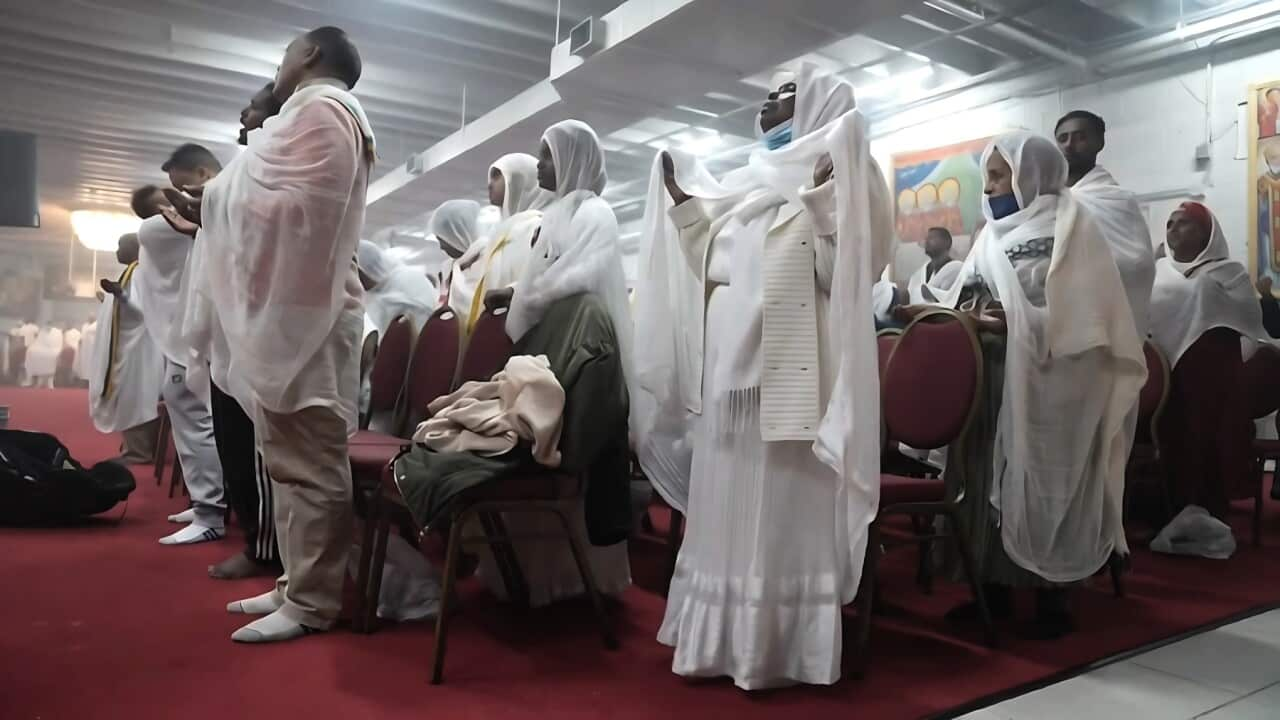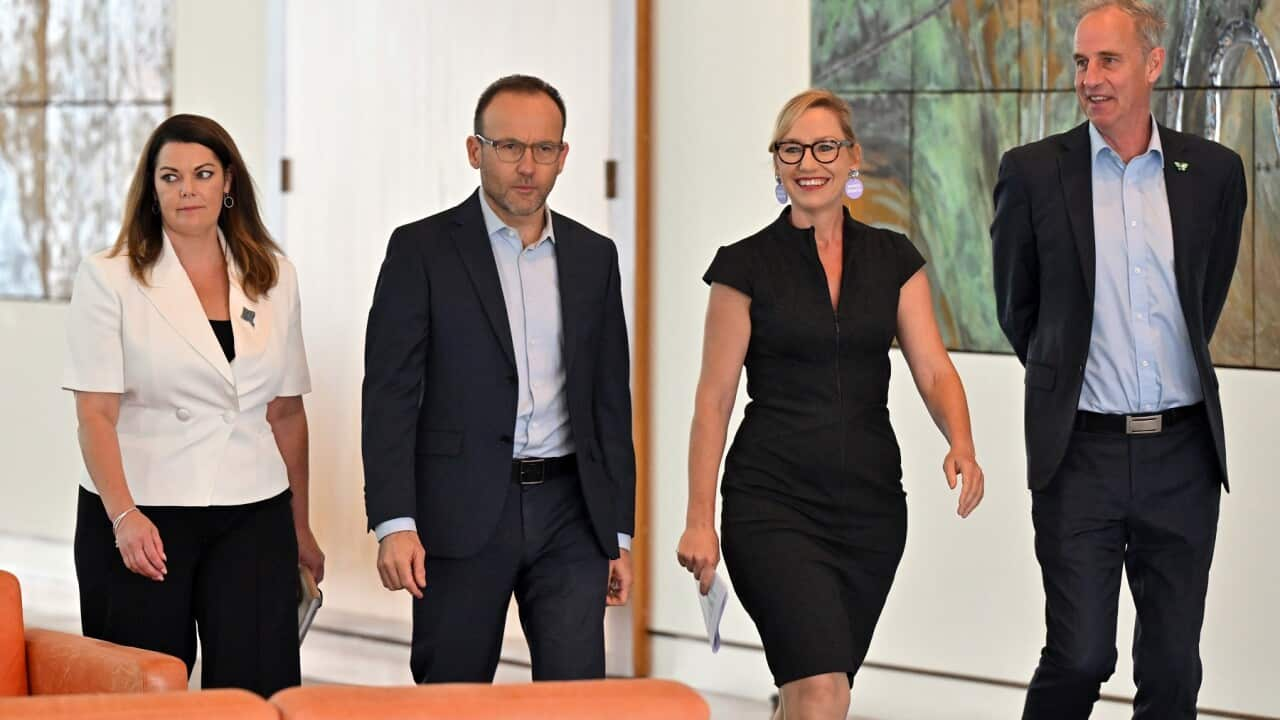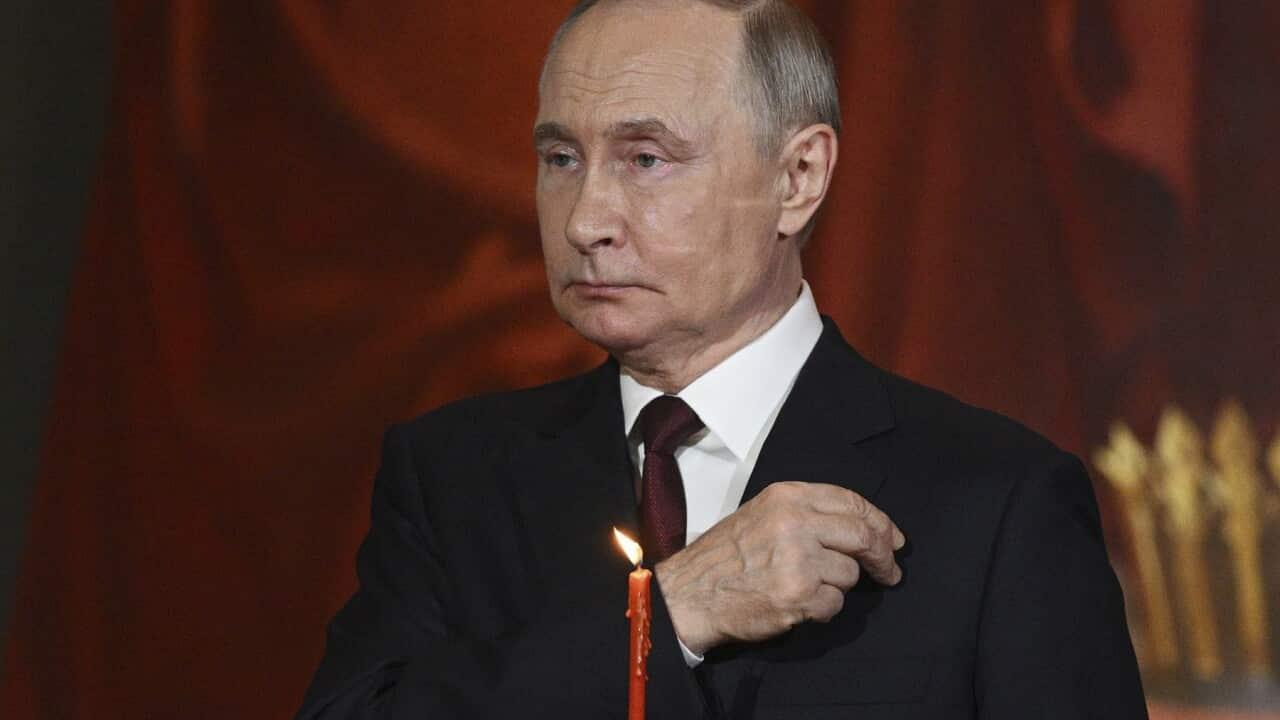TRANSCRIPT
Doilies, hand made blankets, traditional clothing, ornaments and crockery - just some of the objects that carry the imprint of countries left behind a long time ago.
What to do with your father's handmade rugs from Greece, or your aunty's traditional cheongsam from Hong Kong, or your mother's dinner set from Britain circa 1958, when you're no longer using or wearing these items?
They're the things we leave behind when we move, downsize or take our last breath - a connection to the past that for many of us can be hard to let go.
VOX 1: “I have this collection of wooden pieces from the Cedars tree made out of Cedars Wood, and every time we visit, we bring a couple of pieces. So they take a lot of room and I know I don't need them, but I can't have the heart to get rid of them or to donate them. They may be a nice piece to decorate someone else's house, but I feel it's clutter in my house. There are so many.”
VOX 2: “Well, when it comes to being South Asian and having the clothes that we wear to our events, culturally, I am a hoarder in the sense that I never know when I'm going to wear this next, so I'm like, I need to grab onto this. We also love mixing and matching, so I guess we're being more sustainable that way. But also the other layer of it is we see South Asian clothing as heirloom pieces, but there's only so much you can wear something. So I guess I'm always open to donating stuff, and I think it is a really nice way forward. They are quite expensive as well, so why not give it a new life by donating it to someone else?”
VOX 3: “Well, I had a lot of old DVDs, which I don't watch them anymore, but that's been in the garage for ages, both Cantonese and English DVDs. I was just always thinking one day I may be able to watch them again, or those movie that you may not be able to find it online.”
That's three of SBS's language broadcasters there talking about some of the stuff they or they're families are holding onto even when some or all of it no longer serves any practical purpose.
The Salvation Army is encouraging people to donate some of these items, giving them a new lease of life while also helping raise money for much needed charity programs.
A couple of stores in Victoria are putting together what they are calling a Multicultural Showcase at Salvos Stores.
Leigh Murphy is the Regional Manager Victoria of Salvos Stores.
“So Noble Park as an example. So we've dedicated an area in our store. It would be around about 20 to 25 square metres that we have set up. And within that area there is six cultures that we will have displayed and each group. So at this stage it's just Noble Park. We do have some plans to launch this across other stores and other four stores in Victoria sometime throughout this year. That's going to depend on how successful we are with the ongoing donations, because that's going to be critical .”
Indian, Chinese, Mexican, various African countries, Japanese and Indonesian cultural items will be displayed in the Multicultural Showcase.
The aim to promote the benefits of sharing and donating along with giving the general public an insight into the communities they come from.
“Some of the artwork that I see come through our stores. I think there's some that's certainly quite historical from an Australian perspective, but there's also some amazing pieces of artwork that come from all over the world that would have some amazing stories to tell. I also think from a book perspective, some of the really old vintage books see come through again from different cultures across the world. But I think probably the real key one is we get to have a conversation with our donors when they do drop off some of their donations and they actually share the story of where their donations may have come from and their history within their family.”
Ruchi Sharma is the Secretary of Australia India Society of Victoria and is also helping Salvos Stores coordinate donations from the Indian community.
“People have donated, their saris are very, very most famous. I think the dressed from India. So they have saris they have the tops, they have the three piece, Indian women wear, they have the men's kurta, the cotton ones, and the jewellery as well. So there's plenty of item and they are actually in good condition. As Lee's saying. Some of them are really terrific condition. People have been really generous and I remember some of the projects are even not used, so they're just given it for the, because they're really excited. Plus what I see here is it's the effort of bringing the multicultural goods under the same roof. And it's a great example to showcase the mutual respect and care we do for each other”
The Salvation Army is one of Australia's oldest charities providing assistance to Australians for more than 140 years.
Its stores have been around for decades providing affordable clothing and furniture and also funds for its other charity programs.
Industry organisation Charitable Reuse Australia says donation extends the life of 285 million products a year.
There are just under 2,500 charity operated op shops across the country which Charitable Reuse Australia describes as a guilt free, unpretentious shopping experience.
A small number of fulltime employees and around 33,500 volunteers keep the shops running.
Selba-Gondoza Luka is the CEO of Afri-Aus Care.
She's been helping co-ordinate donations from Melbourne's various African communities some of them new, some of them used.
“African people will wear colorful clothes and they have to be made, someone has to do it. So I told the women and everyone said, you know what, we are going to support Salvation Army because they're there for us and women have been coming bringing more clothes. So apart from the African community, we also help people from all over the world. We have Indian friends as well. They came with Indian clothes as well. So I just supported the initiative that Liani has studied. It's great for us. African community will not stop.”
Leigh Murphy says donating is also about making sure things that don't need to go to landfill get a second go.
“I think the other critical thing too is, and it's something that we're very focused on at Salvo Stores, is just ensuring that we're doing our utmost to keep items within the circular economy. Yeah, there's obviously a lot of, unfortunately, a lot of items going into landfill, into rubbish, which could be reused and could serve a purpose to others within the communities. That's something we're really, really focused on across all donations.”













